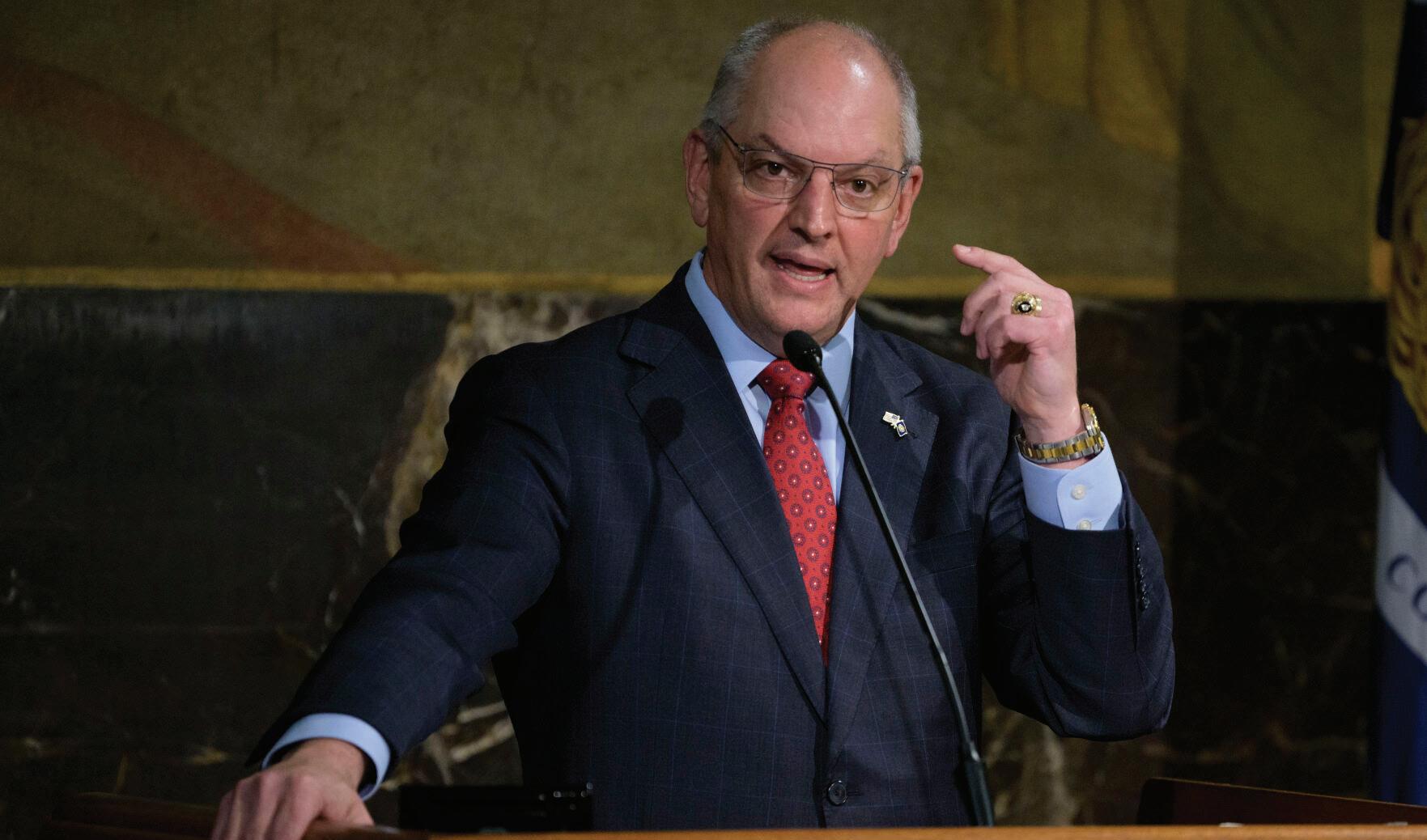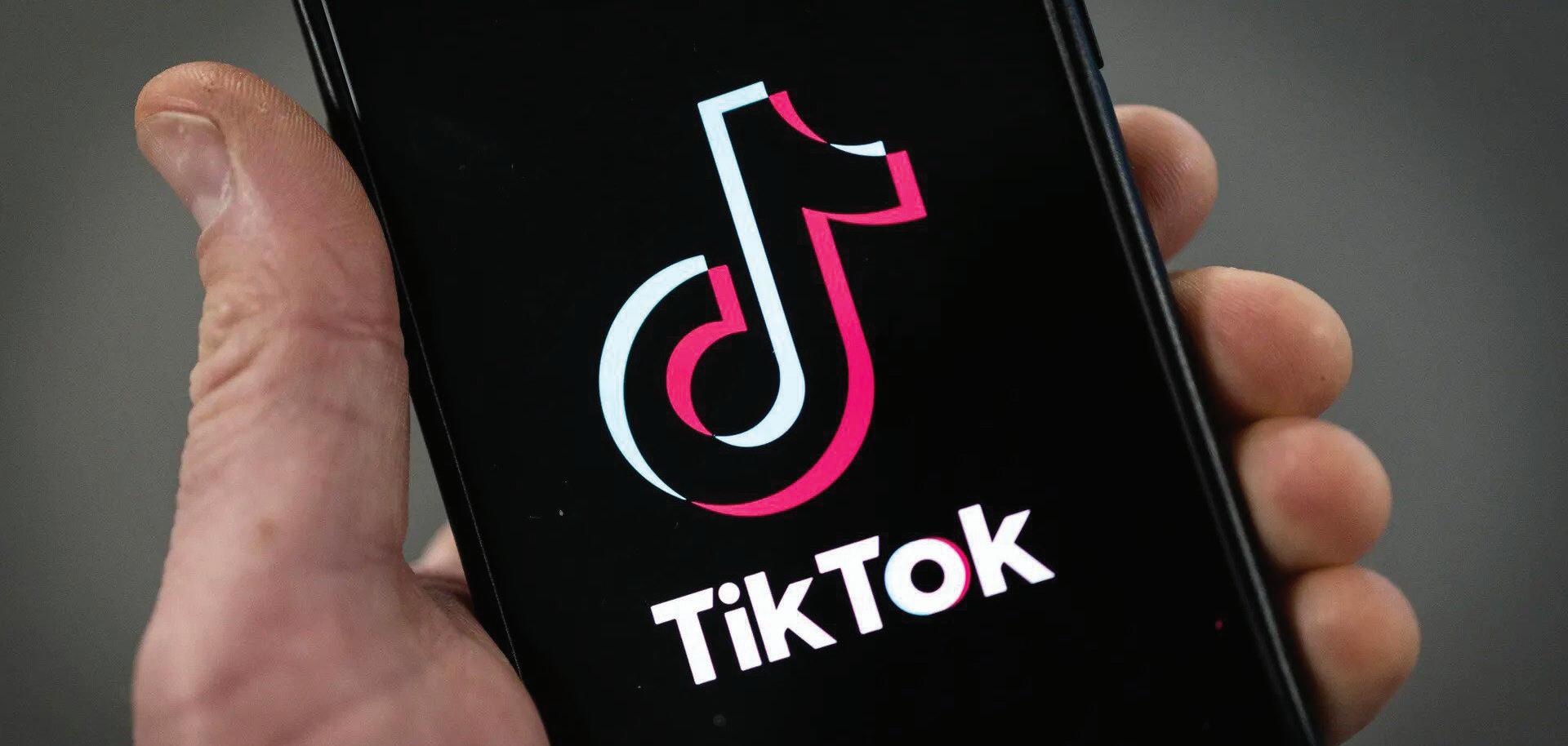FIGHT FOR RIGHTS


Three bills vetoed in battle over LGBTQ+ rights
Read on page 2

LSUReveille.com
@lsureveille



Three bills vetoed in battle over LGBTQ+ rights
Read on page 2

LSUReveille.com
@lsureveille
During the 2023 regular congressional session, the Louisiana Legislature sent three bills targeting LGBTQ+ rights to the governor’s office.

Gov. John Bel Edwards vetoed the anti-LGBTQ+ legislation on June 30, but the fact that the bills were mostly tied to classrooms and education has raised many concerns about the future of trans youth in Louisiana.

House Bill 466
Drafted by Rep. Dodie Horton, R-Haughton, this bill aims to prevent teachers from both discussing matters of sexual orientation or gender identity with students and referring to students by any name or pronouns deviating from the ones on their birth certificate.
The ban on discussing sexuality and gender would apply to teachers of grades kindergarten through 12. The limitation extends outside the classroom and into any school-sponsored extracurricular activities.
The bill also says that students may use alternative names or pronouns with written permission from a parent, but teachers and other students are only under loose obligation to respect those wishes. According to the bill, if a teacher or student “sincerely held religious beliefs” that would be upset by using a child’s preferred pronouns, they don’t have to.
House Bill 81
Also known as the “Given Name Act,” House Bill 81 doubles down on extinguishing the use of any name or pronouns not listed on a student’s birth certificate. In line with House Bill 466, students would have to receive parental permission to use their preferred name or pronouns, and teachers would be allowed to object on religious grounds.
The bill was written by Rep. Raymond Crews, R-Bossier.
House Bill 648
Rather than the classroom, this bill’s range of control would extend to the doctor’s office. Authored by Rep. Gabe Firment, RPollock, it would prevent doctors from providing transgender minors with age-appropriate healthcare.
The bill also goes by the name “Stop Harming Our Kids Act,” and it would ban all forms of genderaffirming care, from hormone treatments to full surgical operations.
The bill would also have doctors already providing care to transgender youths immediately cease treatment, even if it has been documented as beneficial for the child. Doctors would potentially face losing their license for failing to adhere to these premises.
Senator Fred Mills, R-Parks, helped kill the bill during its first
time on the floor. Mills said he had an open mind going into the hearing and wanted to hear the full arguments of the bill’s proponents and opponents. He said the science and data on the issue as well as the testimony of medical professionals were the biggest influences on his decision.
“When I cast my vote I said that I prioritized the value of the physician–patient relationship,” Mills said. “I put my trust that the physicians in Louisiana know better than I do regarding how to treat these children based on medical standards of care, and I decided that this is such a small unique subset of the medical needs of the entire population that I should not take away approved and appropriate medicinal options.”
As a Republican, Mills’ vote may have been shocking to many members of the party. He said the reactions to his decision showed him how polarizing the bill was.
“I have received so many kind messages from families thanking me for recognizing the medical importance of access to puberty blockers or hormone therapy and how that saved their child’s life,” he said. “I’ve also been on the receiving end of very hateful comments.”
With so many attacks being leveled at Louisiana’s LGBTQ+ youth, organizations like the Louisiana Trans Oral History Project are working harder than ever to raise awareness of the issue.
Sophie Ziegler, a member of the project, believes the bills are merely a way for conservative lawmakers to weaponize people’s bigotry while ignoring the worthwhile problems in the state. Lawmakers know people fear things they don’t understand, and because trans youth are a defenseless group, they can capitalize on
that, Ziegler said.
“Louisiana has no shortage of actual problems that our lawmakers could be focusing on – we remain at the bottom of the list of states for education and health, and at the top for incarceration and HIV cases,” Ziegler said. “I don’t think this fascination with the genitals of children reflects the needs or wants of the population of the state.”
Ziegler also believes the bills seek to erase LGBTQ+ identities by banning discussions about them.
“Supporters of these bills think that if they can keep people from knowing about queer and trans identities then these identities will disappear,” they said. “Unfortunately, what will happen is that queer and trans youth will feel disconnected and unwanted.”

Some people also believe the recent wave of legislation is only the beginning. LSU student Tiya said erasing queer and trans kids’ identities will only lead to further restrictions and further oppression. Tiya requested to only use her first name to protect her identity from being outed.
“This is just a stepping stone to even stricter and more broad regulation to everyone in all ages, they just have greater control over kids,” she said. “They have already started to restrict access to trans care for adults as well in states like Florida and Missouri.”
As a trans woman, Tiya has a personal connection to these issues. She said watching these changes unfold in the state is “absolutely gutting.”
In an end-of-session press conference, Edwards confirmed his intent to veto the bills, saying proposed bills would only make issues like the high suicide rates among trans youths even worse.
B-16 Hodges Hall
Louisiana State University
Baton Rouge, La. 70803
NEWSROOM (225) 578-4811

Editor-in-Chief WILL NICKEL
Managing Editor JAYDEN NGUYEN
News Editor JOHN BUZBEE
News Reporter COLIN FALCON
Entertainment Reporter MOLLY TERRELL
Digital Reporter SAM SEDILO
Opinion Columnist LAUREN MADDEN
Head Copy Editor EMMA DUHE
Copy Editor RILEY WHITE
Copy Editor LILLIE UPTON
Graphic Designer MADDIE FITZMORRIS
Photographer MATTHEW PERSCHALL
Photographer MORGAN COOK
ADVERTISING
(225) 578-6090
Layout/Ad Design BEAU MARTINEZ
Layout/Ad Design SAMUEL NGUYEN

The Reveille holds accuracy and objectivity at the highest priority and wants to reassure its readers the reporting and content of the paper meets these standards. This space is reserved to recognize and correct any mistakes that may have been printed in The Daily Reveille. If you would like something corrected or clarified, please contact the editor at (225) 578-4811 or email editor@lsu.edu.
The Reveille is written, edited and produced solely by students of Louisiana State University. The Reveille is an independent entity of the Office of Student Media within the Manship School of Mass Communication. A single issue of The Reveille is free from multiple sites on campus and about 25 sites off campus. To obtain additional copies, please visit the Office of Student Media in B-39 Hodges Hall or email studentmedia@ lsu.edu. The Reveille is published biweekly during the fall, spring and summer semesters, except during holidays and final exams. The Reveille is funded through LSU students’ payments of the Student Media fee.
Another piece of legislation designed to curb power-based violence and improve existing Title IX policies for state universities was signed into law on June 8.

Act 211, previously Senate Bill 211, was authored by Democratic Sen. Regina Barrow and Democratic Rep. Patrick Jefferson. Barrow described the act as a continuation to the series of power-based violence laws brought forth by the Blackwell Report in 2021. Act 202 serves mainly as an update and clean up, she said.
Here’s what the act mandates:
• Additions to the report a state university’s Title IX coordinator files encompassing powerbased violence reports which now requires:
» Including the total number of confidential advisors and employees and the percentage of those who’ve completed the required annual training.
» Including the total of power-based violence complaints made against the university and the number of complaints which revealed power-based violence violations.
» Including “The type of disciplinary or corrective action taken” and the amount of time it took to resolve complaints.
» Including the number of reports filed in retaliation and the findings of investigations related to retaliation reports.
» The report filed by the Title IX coordinator is to be visible on the institution’s website.
• All employees involved in the reporting of power-based violence are required to receive annual training.
• Institutions should administer a voluntary powerbased violence “climate survey” every third year which anonymously polls students, measuring how students feel about Title IX issues and safety concerns. Institutions are to publish the results and encourage participa-
tion.
» Student advocacy groups, like student government, should be consulted in the development and distribution of the survey.
» The addition of the climate survey in the act streamlines state and federal requirements; rather than there being a federal and state survey, the federal counts as the state survey.
• An agreement of cooperation and understanding, called a Memorandum of Understanding, between the head of law enforce -
ment with jurisdiction including an institution’s campus and that institution should be reviewed annually and not prevent victims or employees from reporting to both the institution and law enforcement.
Barrow said the act’s main goal is to continue changing culture surrounding power-based violence.
“A few years prior, it was a fight, a battle,” Barrow said. “Things are getting a little better, but this is still a conversation that must be had.”
In universities, she said, atten-
LEGISLATUREBecause of an improper appropriation, LSU’s plans to upgrade the Pete Maravich Assembly Center will get started with significantly less funding than anticipated. But just how the inappropriate expense got in the state budget remains a mystery.
In a buzzer-beater addition to the state construction budget, approved June 8 in the final minutes of the legislative session, state lawmakers allocated $1 million in cash to the Tiger Athletic Foundation for the “PMAC Enhancement Project,” in addition to $50 million in fees and self-generated revenues and another $50 million in the lowest priority category of state funding. Legislators would need to appropriate the money in a higher priority category in the future before it could be delivered.
But as Gov. John Bel Edwards pointed out on his radio show last week, sending fees and self-generated revenue to a non-state entity is illegal.
“That particular line item is a problem, not not because it’s not a worthy project, but because of the way that was done,” Edwards said. “I think it was done in conference com-
An LSU Agricultural Center professor and his team of 24 researchers have been backed by a $10 million grant from the United States Department of Agriculture to start a four-year project to develop new climate-resistant strains of rice.
According to the project’s leader, Prasanta Subudhi, Climate Resilient Innovations for Sustainable Production of Rice, or “CRISP-Rice,” is founded on two central ideas: Climate change is a real, imminent threat to crop production, and farmers need access to the tools and information necessary to mitigate it.
“A lot of people are skeptical. A lot of people, even educated people, are not willing to accept climate change, but it’s happening. Heat will be a problem, and drought will be a problem,” said
Subudhi.
Subudhi is a plant genetics professor from the School of Plant, Environmental and Soil Sciences who specializes in rice genetics and breeding. With his team of researchers, Subudhi will examine the genetic traits of over 200 types of rice plant from around the world to identify the genes best suited for resisting high salt-content soil and drought. Once identified, the favorable genes will then be applied to domestic strains of rice.
Subudhi said he first applied for the grant through the USDA’s Sustainable Agricultural Systems grant program in 2022. According to its website, the SAS program funds projects focused on increasing sustainability and productivity in the agricultural industry by both optimizing land and water usage, as well as cutting down on crop loss to disease, drought and other stressors.
Subudhi was advised to include a sociologist on the research team, and after adding one, received the grant this year. He said a sociologist was necessary for the project because developing the new rice was only half the goal. For the project to be successful, the new breakthroughs and technologies would have to be distributed to the country’s farmers. Subudhi called this process “extension.”
“Extension means extending the new technology or knowledge to the farming community,” Subudhi said.
Extension is crucial to this project, and according to Subudhi, the USDA stipulated that onethird of the $10 million budget go towards it. He said CRISP-Rice will send demonstrators to farms across the South to show farmers firsthand how productive the new practices and technologies being developed are. Subuddhi
also said rice production schools lasting two to three weeks will be established so young farmers can learn the most sustainable practices right from the jump. Blake Wilson, an assistant professor of entomology at the AgCenter is the project’s extension specialist.
The other two-thirds of the budget will be divided among the researchers as they study rice genes. One key researcher in the project is Manas Gartia, an assistant professor of mechanical engineering at LSU. Gartia specializes in lipidomics and metabolomics, the study of lipids in organic compounds, and previously researched the effects of cancer cells in human and animal tissue.
Gartia said the main adversary of a project like this is time. Observing the difference from one generation of plant to the next takes a full growing season, usu-
ally a year. In conjunction with the almost infinite variety provided by hundreds of thousands of possible genes, Gartia said it would be lucky to see progress after decades of research. This unfortunate reality is where the application of Gartia’s lipidomics shines.
Gartia said focusing on the lipids in each rice plant allows researchers to home in on which genes are affected by specific stressors and narrow the number of possibly favorable genes down to a handful. Gartia said progress will be incremental but consistent over its four-year span.
“So for us, the first test is identifying the right genes, then the next will be, Dr. Subudhi will again go back and create new strains based on that gene. And then again, we can look back and validate whether it is really tolerant or not, by repeating the process,” Gartia said.
TITLE IX, from page 3
dants should already know right from wrong and there should be adequate deterrents to prevent power-based violence.
She said there’s also a strong attitude against victims that needs to be corrected, like placing the blame on victims for coming forward because they choose to dress a certain way, act a certain way or were putting themselves in a vulnerable situation.

“That message has to change,” Barrow said. “We have a lot of
FUNDING, from page 3 mittee, and I think it was done too hasty.”
Despite making overtures toward rejecting the project, Edwards kept it in the bill, despite having the authority to remove it in a line-item veto. He pointed out that, despite the problems with the illegal appropriation, there’s also $5 million in another funding bill for the project.
In an interview, Edwards told the Illuminator he kept the appropriations in the bill so the Tiger Athletic Foundation would still get the cash to begin planning the project.
The inclusion of the project came as another major victory for LSU women’s basketball coach Kim Mulkey, who lobbied
work to do.”
She hopes this can be accomplished, partly, through the climate survey. Previous surveys had only garnered 3% of students responding. In a university of over 32,000 students as of spring 2023, that lack of engagement is very disturbing, Barrow said.
“The why we really gauge our success is by what the students are saying,” Barrow said.
Joshua Jones, LSU’s Title IX coordinator and associate vice president for civil rights, said the university was already doing much of
legislators after her team’s national championship win. LSU Athletics spokesperson Cody Worsham said the department has not yet decided whether it will replace the Pete Maravich Assembly Center or renovate it.
In an interview, Commissioner of Administration Jay Dardenne, Edwards’ budget chief, said despite its inclusion in the approved version of the bill, the Tiger Athletic Foundation would not receive the $50 million in fees and selfgenerated revenues. Dardenne explained that in order for the project to receive those funds, the project would have to be included in the bill as an university project, which would allow it to receive fees and self-generated revenue and non-cash state
“We’re doing everything, with the exception of the climate survey, just because we don’t have it yet. We’re already training our employees and we already have all of our MOU’s signed,” Jones said.
The act was probably streamlining the policies of other universities, which he said he couldn’t speak on behalf of.
Camille Michel, a member of Feminists in Action, said that the attitude of “LSU’s already doing these things” is disheartening because she believes there’s still a lot
funding without the 25% match requirement for non-state entities.
The question of how an illegal appropriation got into the state construction budget remains.
House Speaker Pro Tempore Tanner Magee, R-Houma, is the only member of the sixlegislator panel to negotiate the differences between the House and Senate budget plans to take credit for the project. Lawmakers aren’t responsible for the language to send $50 million in fees and self-generated revenue for the Tiger Athletic Foundation, he said.
The language was presented to lawmakers by somebody advocating for the project on behalf of the university, according
that needs to be done.
“There’s an issue in the university with being adverse to criticism,” said Michel, who is a rising junior studying art history.
On a personal level, she said, she’s observed many who are skeptical of the way the university handles itself regarding Title IX and power-based violence.
According to the April 2023 biannual report on power-based violence, none of the 124 closed cases resulted in disciplinary action being taken. For the majority of these cases, the report says, the

to Magee, who could not recall who it was.
Several LSU administrators, members of its Board of Supervisors and other university affiliates have been in contact with legislators asking for support for the project since the idea first came up in April, Magee said. The project was not included in the university’s capital outlay priorities and therefore not in the original version of the bill.
Rep. Stuart Bishop, R-Lafayette, chair of the House Ways and Means Committee, which handles the state construction budget, did not respond to a request for comment on the project.
Neither did an LSU athletics department spokesperson,
complainants either were not responsive or opted against taking disciplinary action.
“We have to ensure that when someone does come forward they’re treated with dignity. That they do not feel like a victim all over again– and I’ve heard that repeatedly,” Barrow said.
Barrow said she plans to open a forum with students and student organizations by visiting campus sometime in the upcoming fall semester. She believes that’s the best method for outreach and best chance to get genuine feedback.
members of the university’s government relations team or a lobbyist representing the LSU Foundation, which hires lobbyists to advocate for the university’s priorities. The Tiger Athletic Foundation does not have any registered lobbyists.
Edwards called the inappropriate funding a mistake. The bundle of budget bills were released to legislators just minutes before they were asked to vote on them in the final 30 minutes of the session, leading to anger and confusion over funds removed from the bill.
Due to the confusion, Edwards said he reached out to LSU athletics director Scott Woodward after he was unexpectedly asked about the project during his radio show.
 BY TYLER HARDEN @ttjharden8
BY TYLER HARDEN @ttjharden8
With women’s basketball and baseball both winning national championships, all eyes are now set on LSU football to have the same success. Head women’s basketball coach, Kim Mulkey, and head baseball coach, Jay Johnson, both won national titles in their second seasons at LSU. That being said, it’s worth noting that Brian Kelly is also entering his second season with the Tigers.
The success that many LSU fans hope for and somewhat expect starts at the quarterback position. At quarterback, the Tigers come in with experience and, more importantly, talent.
Below I will break down each quarterback likely to receive playing time at some point this season.
Jayden Daniels
Daniels is the clear-cut starter at quarterback this season for LSU, as he’s set to not only be one of the most talented quarterbacks in the SEC, but the entire country. Much of these expectations are because of the experience at LSU he now has.
He came to LSU from Arizona State last season. At Arizona State, Daniels had to run the ball himself frequently and do a lot of the playmaking on his own. So at first, connecting with his receivers at LSU and trusting the system at LSU was an adjustment.
But things really started to click for Daniels in the Tigers home win over Ole Miss. In that
game, he threw for 248 passing yards and two touchdowns, and ran for 121 yards and three touchdowns. He kept the momentum going into the home game against Alabama two weeks later, where he passed for 182 yards and two touchdowns, and ran for 95 yards and a touchdown. Both of those performances earned him SEC Offensive Player of the Week.
Coming into the 2023 season, Daniels won’t have to ad-
just to a new system and won’t have to form brand new bonds with his receivers. Being that he’s now in a familiar environment, many expect Daniels to surpass his achievements from last season and then some.
Garrett Nussmeier
It’s been a waiting game for Nussmeier at LSU thus far. As a freshman, he backed up Max Johnson, but appeared against Ole Miss and started against Arkansas toward the end of
the season. Once Johnson entered his name into the transfer portal, and Myles Brennan announced his retirement from football, many thought Nussmeier would have the starting job, until Jayden Daniels came in.
Nussmeier’s starting possibility wasn’t completely out of the question, however, as a strong Spring Game performance in 2022 opened many eyes. But, of course, Daniels ultimately won
the job through summer camp. He appeared in several games throughout the season, including both the SEC Championship game against Georgia, and the Cheez-It Citrus Bowl against Purdue.
When Daniels’ LSU career comes to an end after this season, Nussmeier will be the prime candidate for the starting job in 2024. But the experience he has as a backup will be valuable this season. If anything were to happen to Daniels, whether it’s injury-related or production-related, Nussmeier stepping in wouldn’t be an unfamiliar sight.
Rickie Collins
LSU landing Collins in the Class of 2023 couldn’t have been better for its system, as he plays a similar game to Daniels.
Collins, who played at Woodlawn High School in Baton Rouge, threw for 1,512 yards and 17 touchdowns and ran for 598 yards and another six touchdowns. He enrolled early at LSU in January and appeared briefly in LSU’s Spring Game, where he completed three of seven passes for 25 yards and ran for 19 yards.
Similar to Nussmeier’s first season, Collins will likely use this season to learn and make a smooth transition to college football. In fact, learning under Jayden Daniels will be useful to him being that they have similar playstyles. But that being said, if LSU was in a tough situation and wanted to stick to a familiar system, Collins would be a solid answer.
Ever since Joe Burrow’s 2019 season came to an end with LSU beating Clemson 42-25 in the national championship, fans have been asking the same thing: Was that the best season ever?
Burrow set record after record on his way to a having a perfect 15-0 season, winning a Heisman Trophy and going first overall in the NFL draft. He didn’t just have the best season that year, he might’ve had the best season by a QB ever.
However, many people said the same things about Cam Newton’s 2010 season at Auburn. Newton set record after record on his way to having a perfect 14-0 season, winning the Heisman trophy and going first overall in the NFL draft.
But which season was actually better?
Stats
At first glance, Burrow clears Newton. By a lot.
Burrow had a combined
(throwing, rushing and, yes, receiving. He caught a 16-yard pass from himself in the SEC Championship against Georgia) 6,055 yards. Newton had only 4,369 yards in comparison (though he did beat Burrow in receiving yards with two catches for 42 yards).
Of course, Burrow played more games so it would be better to look at per game averages. Burrow averaged 403.67 yards per game while Newton had 312.07 yards per game.
The next stat would be touchdowns. Burrow had a combined 65 touchdowns for an average of 4.33 touchdowns per game. Newton had 51 (one receiving) touchdowns for an average of 3.64 touchdowns per game.
If we used those per game number to give Newton an extra game, he’d have around 4,681 total yards and 55 touchdowns in a 15-game season. Impressive, but still well short of Burrow’s mindboggling numbers.
Next, we will look at efficiency numbers. Burrow had a
completion percentage of 76.3% compared to Newton’s 66.1%.
Burrow also threw six interceptions in 15 games compared to Newton’s seven interceptions in 14 games.
Burrow had a passer rating of 202.0 compared to Newton’s passer rating of 182.0.
Burrow clearly has the edge in stats.
Big game player
If you want to be the best, you have to beat the best. Now, we will compare each player’s performance in the SEC Championship and the National Championship.
Despite Burrow having one of the best SEC Championship performances a quarterback can have, Newton might have him beat here.
Burrow put up 406 total yards and four touchdowns in LSU’s 37-10 win over Georgia. Newton put up 408 total yards and six touchdowns in Auburn’s 56-17 win over South Carolina.
However, the difficulty of the opponents was quite different.
South Carolina was the No. 19 team in the country and came into the game with three losses already. LSU faced a Georgia team that was ranked No. 4 and had one of the best defenses in the country.
This one is a toss-up on which performance was more impressive.
The national championship performances, not so much.
Burrow’s game against Clemson was one of the most impressive championship performances ever. He put up 521 yards of total offense and six total touchdowns as LSU ended Clemson’s 29 game winning streak.
Newton put up 329 total yards and two touchdowns as Auburn beat Oregon 22-19. Newton also had an interception and a lost fumble.
Newton did lead a late drive down the field and did what he had to do to win the game, but it wasn’t his finest performance of the season.
Burrow takes the edge in championship games too.
Supporting Cast
Finally, this is where Newton has Burrow beat.
LSU’s 2019 was one of the most talented of all time. Ja’marr Chase and Justin Jefferson are maybe the two best receivers in the NFL, and they both played on the same team in college. In total, 30 players were drafted from that 2019 team with seven being first round picks.
Newton was one of just four players to be drafted that started for Auburn in the national championship game. None of the players drafted were in skill positions besides Newton.
Newton was a one-man wrecking crew while Burrow had more talent surrounding him than maybe any quarterback ever.
However, this doesn’t make Newton’s season better. Newton might have been a better talent, but Burrow undoubtedly had the better season.
In terms of best seasons ever, Burrow’s 2019 season comes out on top.

Taylor Swift has officially released “Speak Now (Taylor’s Version),” making it her third re-recorded album and marking halfway to reclaiming the rights to her music.
When Swift released “Speak Now” back in 2010, her experimentation into rock led the way to it becoming a classic.

Now, re-recorded 23 years later, she goes back to songs of heartbreak, tragedies, controversial relationships and fairy tales that led her to finding her voice throughout the album.
“Speak Now (Taylor’s Version)” came out with six new tracks from the vault and continues to add to the story of the album.
Swift looked to her inspirations when it came to including features on the album. “Electric Touch” features Fall Out Boy and “Castles Crumbling” features Hayley Williams from Paramore, both bands she credits to impacting her writing and lyrical style at the time of writing the album.
“Electric Touch” brings us the feeling we get when we go
out with that certain someone for the first time. It can either go really well or all come falling down. All you want is for them to bring light to your life and honestly both Swift and Fall Out Boy on the same track does exactly that.
Hayley Williams in “Castles Crumbling” talks about the fall from grace. The fear of all that you’ve worked for comes crumbling down. You lock yourself away from everyone and want to just hide. Swift and Williams have both had their personal lives feel like they’re falling apart, so sharing the track has more power and meaning behind it.
“When Emma Falls in Love” talks about a girl who is gorgeous, courageous and outgoing. Swift revealed that the song is about her friend, who many fans speculate is actress Emma Stone.
Swift also released from the vault “I Can See You,” which is a nod to the rock sound and influence that she was inspired by.
“Foolish One” talks of the hopeless romantic and “Timeless” speaks to the perspective of her grandmother and the events that led to her grandparents’ forced separation due to the war.
Though the original songs that were released on “Speak Now” are re-recorded, the infamous line from “Better than Revenge” has been changed for the worse.
The song released in 2010 included the line “She’s better known for the things that she does on the mattress.” As the time came closer for the release of Taylor’s version, the leak about the change was something many fans were not prepared for.
“Better than Revenge” embodies the fire that girls get when jealousy looms over them. Though Swift probably felt indifferent overtime, I think most Swifties still hear the mattress line.
Following the release of “Speak Now (Taylor’s Version),” Swift had plenty of surprises in store for fans at her Kansas City night one show.
Before the release, Swift only sang “Enchanted” during her setlist, but night one included the addition of “Long Live” to her “Speak Now” era. She sang “Never Grow Up” and “When Emma Falls in Love” as the night one surprise songs.
Swift also announced that she would be releasing a music
video for the vault track “I Can See You,” which stars her ex Taylor Lautner and Joey King. Swift explained how Lautner was a positive force during her time writing “Speak Now” and has even become good friends with
him and his current wife. With all the excitement of “Speak Now (Taylor’s Version)” there will more than likely be more surprises up her sleeve, and us Swifties cannot wait to see what’s in store.
Taylor Swift released her “Speak Now (Taylor’s Version)” on Friday, the third of her rereleased albums.
But why is Swift re-recording her albums and what does a “Taylor’s Version” album actually mean?
If you’re not a Swiftie or aren’t familiar with Swift’s career, here’s a guide to understanding the re-recordings.
In 2005, Taylor Swift signed with Big Machine Records and recorded six albums during her time with the label. Her contract ended in 2018, and she switched to Republic Records.
Big Machine owns the original recordings, also referred to as masters, of Swift’s music. Scott Borchetta, the previous owner of Big Machine, sold her masters to music manager Scooter Braun, who manages artists like Kanye West, who Swift has obviously had issues with throughout her career.
“I knew [Borchetta] would sell my music, I knew he would do that,” Swift said in an interview with CBS Sunday Morning. “I couldn’t believe who he sold it to.”
Swift made a Tumblr post in 2019 detailing her negative experience with Braun throughout her time in the music industry after her masters were sold.
That same year, Kelly Clark-
son tweeted the idea to Swift to re-record her songs she doesn’t own and create an incentive for fans to buy the new versions of her old albums, instead of continuing to buy the old versions.
Each of Swift’s re-released albums have (Taylor’s Version) in the title and the name of each track to signify that she owns them.
The new albums also have updated versions of the original cover art, and they include “From The Vault” tracks, which are songs Swift wrote during that album’s era that didn’t make it onto the original track list.
“From The Vault” songs are the most anticipated part of Swift’s re-releases for fans, as they have never been heard be -
fore and usually contain surprise collabs.
Swift collaborated with Fall Out Boy and Hayley Williams of Paramore for “Speak Now (Taylor’s Version).” She reunited with close friend Ed Sheeran and collaborated with Phoebe Bridgers and Chris Stapleton on “Red (Taylor’s Version).” For “Fearless (Taylor’s Version),” she joined
forces with Keith Urban and Maren Morris.
Swift’s most streamed “From The Vault” song is her 10-minute version of “All Too Well,” with over 570 million streams.
The re-releases have performed well for Swift, especially compared to the original versions of the albums. Since April 9, 2021, the date that her first re-release came out, “Fearless (Taylor’s Version)” has earned over 1.18 million equivalent album units while the original 2008 version has earned 535,000 equivalent album units.

According to Billboard, “Red (Taylor’s Version)” has done even better than “Fearless (Taylor’s Version).” Since its re-release on Nov. 12, 2021, the new recording has earned 3.32 million equivalent album units compared to the original version’s 390,000 equivalent album units.
“Red (Taylor’s Version)” has sold 950,000 copies since its release while the original version has sold just 45,000 since the rerecording came out.
“Red (Taylor’s Version)” has also hit over 2.86 billion ondemand streams since it came out in November 2021 while the original version has earned just 476.28 million streams.
With the release of “Speak Now (Taylor’s Version),” Swift is now halfway through with rerecording her albums. The last three are “1989,” “reputation” and “Taylor Swift.”
Inhale. Exhale. Our bodies naturally perform it, yet most of us forget to do it.
From dawn to dusk our schedules are filled, as the “busy bees” and “eager beavers” receive endless admiration and recognition. The more you accomplish, the more you are worth and the busy people are the ones accomplishing the most.
Busyness has become a badge of honor, an honor that comes with a cost.
As we conduct ourselves like fast-paced machines that are striving for efficiency and productivity, wanting things instantaneously, we forget about the little things. The beautiful, forgotten, little things.
The beauty of slowing down and simplicity.
When did we forget that the small things were once very big things for us?
The CDC says that a child should be able to walk unassisted at 18 months. The time it
takes for a child to reach this developmental milestone is longer than a year, and it is celebrated greatly by all who witness it.
Now, it would be snail-paced progress if it took us 18 months to accomplish one thing.

We want to accomplish the most in the shortest amount of time. The thought of slowing down or pausing, even just for a moment, is frowned upon and hinders our progress.
We fashion our schedules in
a similar manner to the Grinch, to ensure that we can accomplish the most.
Of course, our schedules include greetings, meetings and breathing, instead of “4:00, wallow in self-pity; 4:30, stare into the abyss; 5:00, jazzercize; 6:30, dinner with me – I can’t cancel that again; 7:00, wrestle with my self-loathing…,” but the idea is the same.
Every minute is planned out. Our schedules focus on the big
things, leaving no time to recognize the little things.
For more than a decade, cheerleading was the center of my life. I recently realized that I overlooked the biggest lesson cheerleading taught me. It was such a little thing at the time, and even now is still a little thing, but that lesson is how I, years later, interpret the words of the first cheer I ever learned:
“Stop, look and listen. The best is here…”
“Stop” what you are doing. Press the pause button on life for a minute. The busyness will soon return.
“Look” at the world around you, the world you often rush through and disregard.
“And listen” to aspects you push aside. Listen to the chirping of the birds outside your window, the faint laughter of the children playing next door, the forsaken dreams you had for yourself and the remaining faint desire to live them.
“The best is here.” The here and now, the present. Learning to live in the present moment and being present in it. Acknowledge that the best time to change something in life that no longer serves you is now. The best is here, embrace it.
When we recognize and appreciate the little things, being a “busy bee” or “eager beaver” becomes less important than it once was.
Allow yourself to turn off the fast-paced machine occasionally so that you can appreciate the beautiful, forgotten, little things.
BY MADDIE FITZMORRISI recently graduated from LSU and like so many students used the LSU Wi-Fi system for a variety of services and information. But it appears this system will no longer allow LSU students to access TikTok now that a state ban for the app on all state-administered networks has overwhelmingly passed the Legislature.
Many college campuses across the nation are banning TikTok from their university Wi-Fi networks, not just in Louisiana. If you think as a student, this won’t impact you, maybe you’re right –but think about those it would affect. A ban of this type disproportionately affects certain students who do rely on public WiFi for internet connection.
There are 90,000 students in Louisiana’s public colleges and most of them cannot afford private Wi-Fi networks on their phones and tablets while paying tuition. Additionally, LSU has required incoming freshman to live
EDITORIAL BOARD Will Nickel Editor-in-Chief Managing Editor Jayden Nguyen John Buzbee News Editoron campus since 2017 and those students would have no access while being on campus close to 24/7.
Incoming freshman can use TikTok as a tool to help get around an unfamiliar campus and make new relationships. TikTok for all students has helped create a community, help students promote student owned stores, grow social media accounts and much more. TikTok has also added a STEM tab to the main page that students can use as a great resource for education. These students will miss out the most with TikTok not being provided.
Many of the schools in our state serve students from lowerincome backgrounds who rely on public Wi-Fi as their primary internet access. These students depend on public networks to complete their assignments, conduct academic research and communicate with their peers.
Banning TikTok would deny them access to a platform that
has proven to be a source of education, inspiration and even potential career opportunities.
Meanwhile, some students will continue to have unrestricted access to TikTok through personal hotspots, data plans and other Wi-Fi sources. This discrep -

ancy creates an unfair advantage as these students would continue to benefit from the networking opportunities and career advice that TikTok provides. University TikTok bans would exacerbate the existing inequity in access to technology.

When asked earlier this year about a potential TikTok ban LSU Vice President and Provost Roy Haggerty responded, “I don’t think it is something LSU is likely to pursue.”
Unfortunately, now LSU has to pursue it.
The Reveille (USPS 145-800) is written, edited and produced solely by students of Louisiana State University. The Reveille is an independent entity of the Office of Student Media within the Manship School of Mass Communication. Signed opinions are those of the author and do not necessarily represent the views of the editor, The Reveille or the university. Letters submitted for publication should be sent via e-mail to editor@lsu.edu or delivered to B-39 Hodges Hall. They must be 400 words or less. Letters must provide a contact phone number for verification purposes, which will not be printed. The Reveille reserves the right to edit letters and guest columns for space consideration while preserving the original intent. The Reveille also reserves the right to reject any letter without notification of the author. Writers must include their full names and phone numbers. The Reveille’s editor in chief, hired every semester by the LSU Student Media Board, has final authority on all editorial decisions.
“The trees that are slow to grow bear the best fruit.” Molière French playwright 1622 — 1673